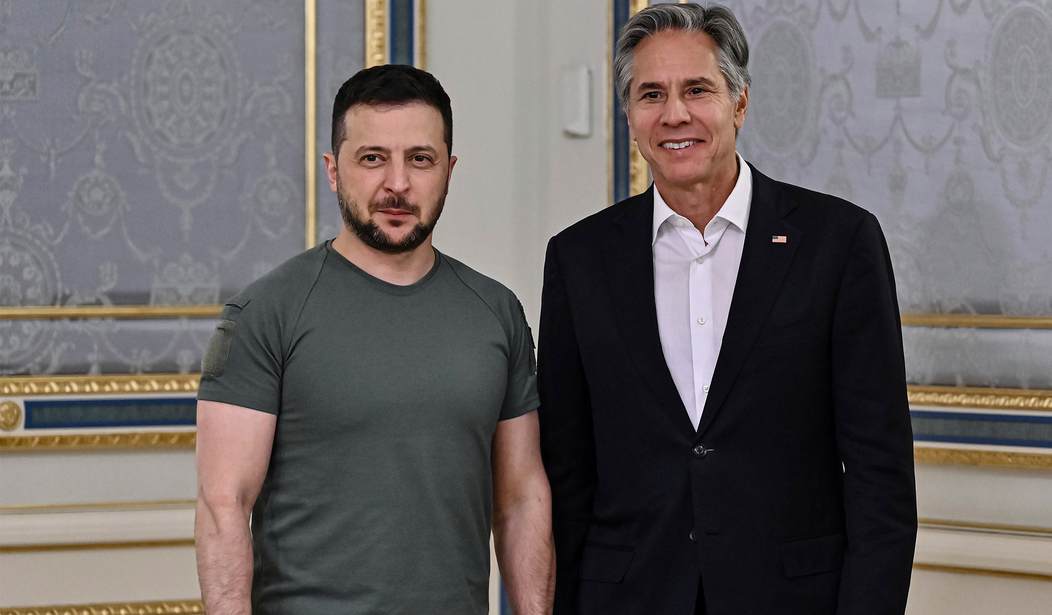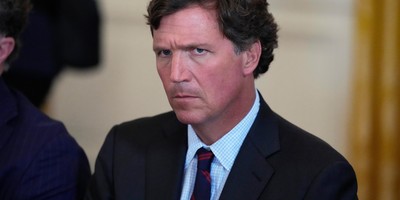Few events of 2022 occasioned as much surprise as the surge in support for Ukraine among American liberals. Not since the Spanish Civil War have they so enthusiastically championed a foreign military cause. Not since the early stages of the Vietnam War have they so willingly supported military assistance to a beleaguered nation. It was primarily the domestic politics of the Vietnam War that sapped liberals’ ardor for war over the past five decades — and it is primarily domestic politics that have renewed their ardor for foreign wars. Support for war among American liberals has differed over time not because it's rooted in principle, but rather in what fits current domestic partisan debates.
When President Lyndon Johnson sent U.S. combat troops to Vietnam in 1965, he received the backing of all Democratic factions — liberal, moderate, and conservative. The mass disillusionment of liberal Democrats didn’t begin until the second half of 1967, when opposition erupted at colleges and universities. As “Me Generation” undergraduates returned to campus that fall, many were upset by the disappearance of draft exemptions for graduate school, which had been the best route for evading military service after graduation. Throngs of students suddenly denounced a war that most of them previously had thought made sense.
Henceforth, these students latched on to every claim suggesting that America had no strategic stake in Vietnam and was backing the wrong side. They paid no heed to ongoing U.S. military successes and didn’t care South Vietnam only held its first democratic elections for chief of state in 1967. Stalinist autocrat Ho Chi Minh became their folk hero. The ultimate success of the American intervention in containing communism was drowned out by overblown accounts of American war crimes.
The domestic political development driving liberal enthusiasm for Ukraine today is mostly the result of a partisan ideological crusade. That crusade is called “anti-fascism,” or, in the words of former Speaker of the House Nancy Pelosi, “staving off an assault on democracy globally.” Forgetting their prior disdain for democratic governments in South Vietnam, Iraq, and Afghanistan, the Left now stands on the ramparts of democracy against a fascist conglomerate that is said to include Vladimir Putin, the January 6 rioters, and Donald Trump.
Recommended
This narrative has strayed as far from the facts as did the Baby Boom rendition of the Vietnam War. As sober scholars of fascism have noted, Trump doesn’t come close to meeting the commonly accepted definition. He didn’t dissolve Congress or prevent the transfer of power to Joe Biden. He didn’t murder any of his political opponents. The extremists who rioted at the Capitol were no more representative of the Republican Party than Antifa is representative of the Democratic Party.
Our current period resembles the Vietnam era, more positively, in that the general public does not share the domestic preoccupations of the liberal elites. The rest of the country didn’t shift their opinions in the fall of 1967 when the students at Yale and the University of Wisconsin did. Of the two public opinion polls taken in the fall of 1968, one found that just 13 percent of Americans wanted a complete withdrawal from Vietnam, and the other registered only 19 percent.
Even though Lyndon Johnson, by his own admission, failed to sell the war to the American people, the 1968 polling shows the American people saw for themselves that the war in Vietnam was worth fighting. They understood communism posed a mortal threat to the United States and humanity. They understood fighting in Vietnam would diminish the threat of communism and maintain America’s international credibility and moral authority. Events proved their judgment correct. America’s stand in Vietnam saved Indonesia from communism, shattered North Vietnam’s alliance with China, and shifted China’s attention from international crusading to the calamitous internal crusading of the Great Proletarian Cultural Revolution. Perhaps most crucially, it bought time for South Korea, Taiwan, Japan, Malaysia, Singapore, Thailand, and the Philippines to become prosperous, democratic bulwarks against China.
While many moderate and conservative Americans now support sending aid to Ukraine, they are much less willing than liberals to advocate indefinite assistance or deployment of American combat troops to Ukraine. Being more patriotic on average than liberals, they provide more of their youth to the armed forces, and are more likely to insist that U.S. military forces serve the national interest. In the case of many American liberals, it’s easier to change positions on the matter of foreign wars if they’re not risking their lives over the decision — for Ukraine or for other foreign endeavors. Therefore, when supporting or choosing not to support America’s involvement in a war, we ought to attempt to examine what’s truly at stake for each position and what motivates such decisions: principle and truth, or political expedience?
Mark Moyar is the William P. Harris Chair of Military History at Hillsdale College and author of Triumph Regained: The Vietnam War, 1965-1968.
























Join the conversation as a VIP Member